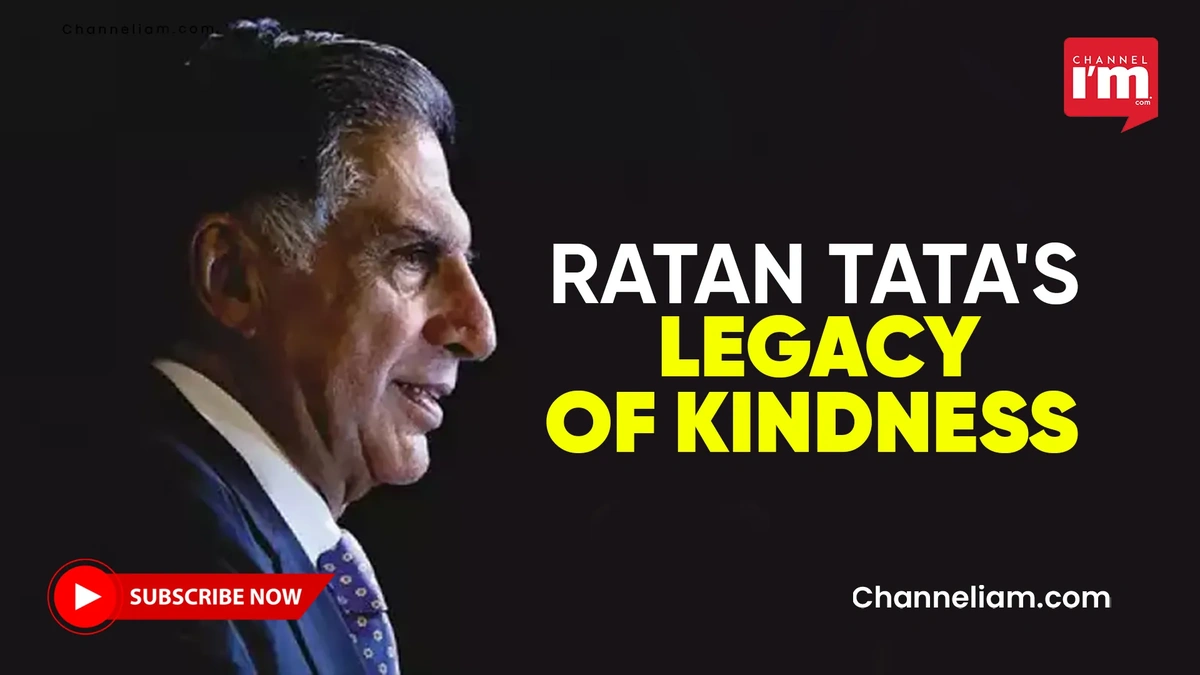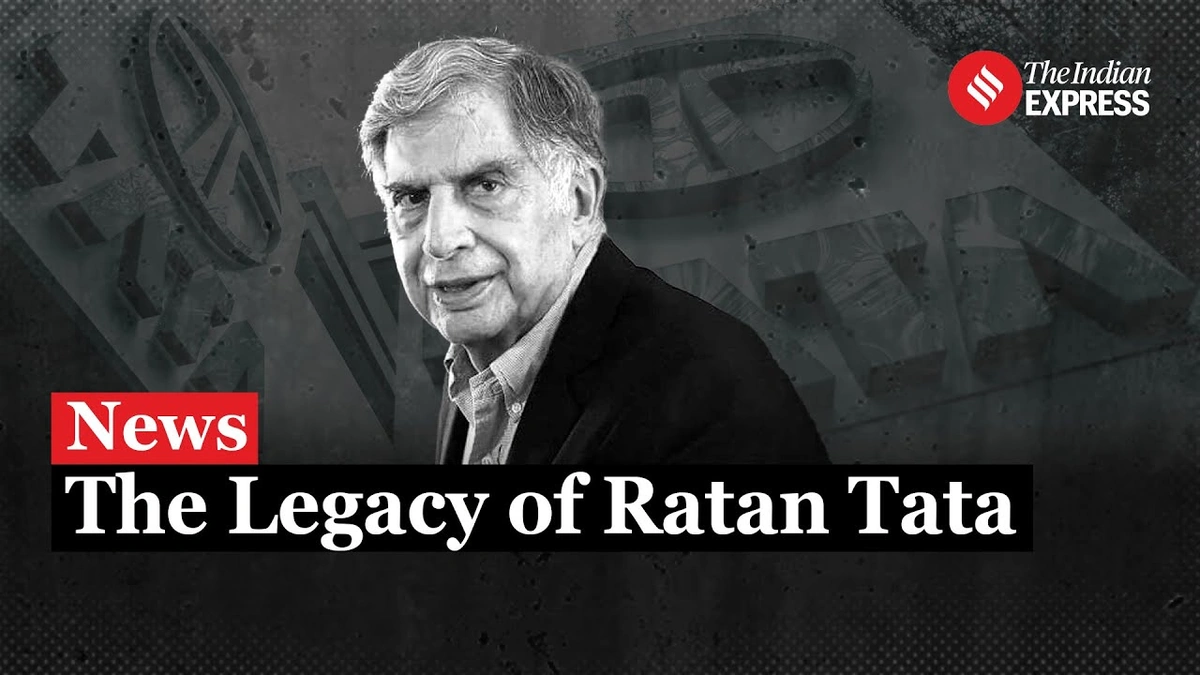Ratan Tata’s Legacy | 7 Iconic Business Decisions, From Nano to Air India
Ratan Tata. The name itself conjures images of integrity, philanthropy, and astute business acumen. He’s not just a businessman; he’s an icon, a beacon of ethical leadership in a world often dominated by greed. But what exactly makes his legacy so impactful? Let’s not just recite facts and figures. Let’s dive into the “why” behind the man and his monumental decisions.
The “Why” Behind the Business | A Philosophy of Nation Building

It’s easy to see Ratan Tata’s decisions through the lens of profit and loss – did the Nano succeed? Did Air India’s acquisition make sense? But that’s missing the point. What fascinates me is that so many of his seemingly “risky” decisions were driven by a deeper philosophy: nation-building. Tata isn’t just about shareholder value; he’s about stakeholder value, and that includes the Indian public.
Consider the Tata Nano . It wasn’t just about creating the world’s cheapest car. It was about providing safe, affordable transportation to millions of Indian families who were risking their lives daily on two-wheelers. Did it face challenges? Absolutely. But the intention was undeniably noble. The vision behind the Nano car was truly commendable.
And then there’s Air India . Let’s be honest, acquiring a debt-ridden airline seemed like a gamble to many. But Tata, with his emotional connection to the airline founded by J.R.D. Tata, saw it as an opportunity to restore its former glory. He understood the national pride associated with Air India and the potential to turn it around with the right leadership and vision. What many people don’t see is Tata’s investment in national heritage.
What fascinates me is how Ratan Tata’s leadership extended beyond just business strategy. He always believed in ethical practices. The ethical business approach is what sets Ratan Tata apart.
The Bold Gamble | Taking Risks with a Vision
Ratan Tata wasn’t afraid to take bold gambles, decisions that often seemed counterintuitive to conventional wisdom. For example, Tata Steel’s acquisition of Corus in 2007 was a massive undertaking, propelling Tata Steel into the ranks of the world’s largest steel producers. At the time, many questioned the hefty price tag. But Tata saw the long-term potential and the strategic advantage it would provide. This proved to be a crucial part of the Ratan Tata legacy .
Another example is Tata Consultancy Services (TCS). While initially met with skepticism, Ratan Tata championed its growth, transforming it into a global IT powerhouse and one of India’s most valuable companies. TCS’s journey is a testament to Tata’s foresight and his ability to identify and nurture emerging opportunities.
And you know what? Not every decision paid off immediately. But that’s the thing about true leadership – it’s not about avoiding risk, it’s about calculated risk-taking based on a strong belief in your vision. And Ratan Tata had that in spades. The willingness to take calculated risk is the cornerstone of Tata’s business decisions .
The Human Touch | Philanthropy and Social Responsibility
What truly solidifies Ratan Tata’s legacy is his unwavering commitment to philanthropy and social responsibility. The Tata Trusts, under his guidance, have been instrumental in addressing some of India’s most pressing social challenges, from healthcare and education to rural development and disaster relief. It’s important to note the social initiatives undertaken by Tata Trusts .
The Tata group’s response to the 2008 Mumbai terror attacks is a testament to their commitment to the community. They provided support to the victims and their families, demonstrating a level of compassion and social responsibility rarely seen in the corporate world. Let me rephrase that for clarity: Tata’s business decisions are always tied to a sense of community and social responsibility.
But it’s not just about writing checks. It’s about actively engaging in initiatives that create lasting impact. The Tata Trusts are involved in grassroots programs that empower communities and improve the quality of life for millions of Indians. I initially thought that Tata was all about the business, but the charitable work is what really cemented my perspective of him.
Navigating Challenges | Resilience in the Face of Adversity
Ratan Tata’s journey hasn’t been without its challenges. He faced intense competition, economic downturns, and political hurdles. But he navigated these challenges with remarkable resilience and a unwavering commitment to his values. His leadershipduring times of crisis is a testament to his strength and character.
He faced criticism for some of his decisions, particularly the Nano. But he never wavered in his belief in the project’s potential and its social impact. He learned from the setbacks and continued to innovate and adapt. It’s all about learning and adapting to the ever changing environment.
And here’s the thing: that’s what sets great leaders apart. It’s not about avoiding mistakes, it’s about learning from them and using them as stepping stones to future success. Tata’s leadership style is a perfect example of that.
Air India’s Homecoming | A Full Circle Moment
The acquisition of Air India is perhaps the most poignant chapter in Ratan Tata’s legacy. It’s a full-circle moment, bringing the airline back to its original founders after decades of government ownership. This acquisition is more than just a business deal; it’s an emotional homecoming.
What fascinates me is the potential for Tata to revitalize Air India and restore its former glory. With its deep understanding of the Indian market and its commitment to customer service, Tata has the opportunity to transform Air India into a world-class airline once again. And that, my friends, would be a truly remarkable achievement. The potential for Air India’s revitalization is extremely high with Tata leading the charge.
Looking Ahead | The Enduring Impact
Ratan Tata’s legacy extends far beyond the balance sheet. It’s about his unwavering commitment to ethical business practices, his dedication to social responsibility, and his vision for a better India. His impact will continue to be felt for generations to come. The importance of understanding ethical business practices is imperative when attempting to emulate Tata’s success.
But here’s the thing: his legacy isn’t just about him. It’s about inspiring others to follow in his footsteps, to embrace ethical leadership, and to use their businesses as a force for good. As per the discussions around Tata’s legacy, it’s a benchmark for future leaders.
And you know what? That’s the most powerful legacy of all. The ability to inspire others to create a better world. That’s Ratan Tata in a nutshell. The impact he had is truly impressive. It’s a powerful message for leaders around the world.
FAQ
What were some of the major challenges Ratan Tata faced during his tenure?
Ratan Tata faced challenges like intense competition, economic downturns (such as the 2008 financial crisis), and navigating complex regulatory environments. The Nano project also faced significant hurdles.
What is Ratan Tata’s philosophy on business ethics?
He emphasized ethical practices, stakeholder value over just shareholder value, and prioritizing social responsibility alongside profit. Ethical behavior is not just a concept but a practice.
How did Tata Trusts contribute to social development in India?
Tata Trusts have been instrumental in healthcare, education, rural development, and disaster relief efforts, significantly improving the lives of millions of Indians.
What made the Air India acquisition so significant?
It represented the airline’s return to its original founders after decades of government ownership, symbolizing a restoration of its former glory and Tata’s emotional connection.
What key leadership qualities defined Ratan Tata’s approach?
Visionary thinking, bold risk-taking, resilience, ethical leadership, and a strong commitment to social responsibility defined his leadership.
What is the secret of Tata’s Success?
The willingness to take calculated risks, and to treat all stakeholders with respect and dignity. His humility and philanthropic attitude is what inspires me.
In conclusion, Ratan Tata’s legacy isn’t merely a collection of successful business decisions; it’s a testament to the power of ethical leadership, social responsibility, and a unwavering commitment to building a better India. It’s a legacy that will continue to inspire generations to come.













